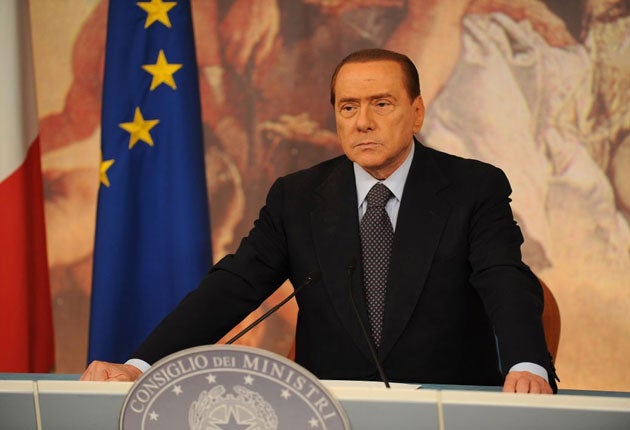Eurozone crisis returns to worry Italy and Spain

The eurozone's sovereign debt worries moved back towards crisis yesterday as Spanish and Italian borrowing costs touched levels that triggered the Greek, Irish and Portuguese bailouts.
The interest demanded by investors to lend money to Spain for 10 years soared to 6.47 per cent at one point. For Italy, the figure rose as high as 6.27 per cent, unsettlingly close to the 7 per cent threshold that left Greece, Ireland and Portugal in need of emergency funding. In both cases, the rates demanded were the highest since 1997.
In a sign of the growing concern about Rome's debt burden, the yield on five-year Italian bonds rose to briefly hit parity with Spain. The jump marks a shift from the almost singular focus on Madrid after Portugal was forced to ask for a bailout earlier this year.
Amid the turmoil, the Italian economy minister Giulio Tremonti called an emergency meeting with the central bank, the market regulator and the country's insurance authority. The talks came ahead of an address to parliament today. Spanish politicians were similarly rattled, with Prime Minister Jose Zapatero delaying his holiday to monitor the situation.
Analysts said the market worries were down to a number of factors, including a Spanish bond auction on Thursday, and the release of quarterly growth figures for Italy on Friday. The turmoil was also blamed on the fact that the European Central Bank (ECB) had stopped buying EU government bonds to soothe markets.
Although the second Greek rescue package agreed 10 days ago includes powers for the EU bailout fund to purchase the bonds instead of the ECB, those powers need to be ratified by member states, according to David Owen, chief European financial economist at Jefferies. That could take months, he warned.
Subscribe to Independent Premium to bookmark this article
Want to bookmark your favourite articles and stories to read or reference later? Start your Independent Premium subscription today.

Join our commenting forum
Join thought-provoking conversations, follow other Independent readers and see their replies